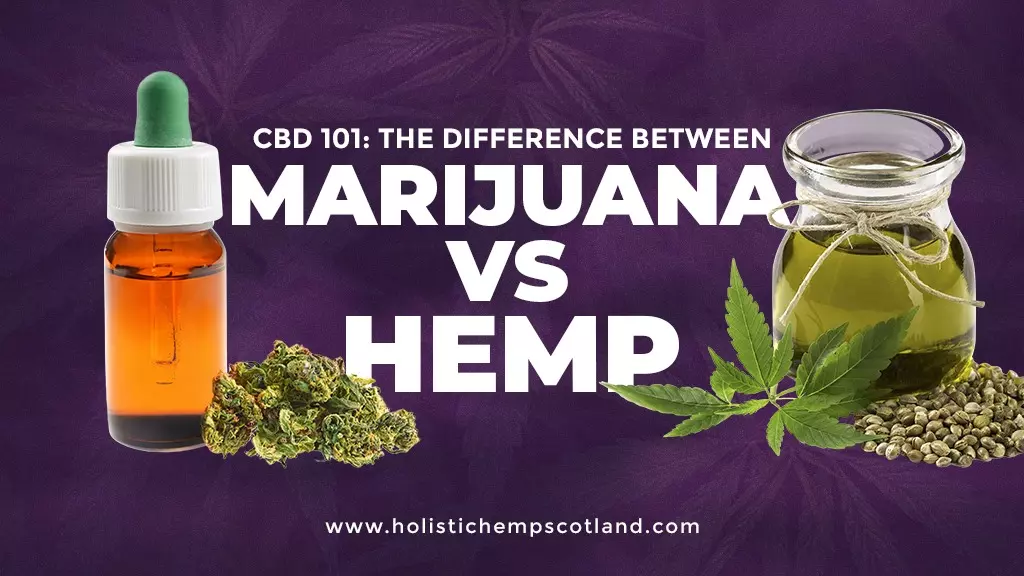Recent Posts
Post Catagories

Despite the huge popularity of CBD, many consumers are still unclear what the difference is between marijuana-derived CBD and hemp-derived CBD. For years, words like CBD, cannabis, marijuana and hemp have been lumped together.
Nowadays, with the CBD business further expanding, and it appears like everyone is hopping on board. Everyone, with the exception of our parents, who may be hesitant to try it since it reminds them of marijuana. Many older people are unable to benefit from the numerous health and wellness benefits that CBD has to offer due to this misperception. Here’s how to clear up any misunderstandings with your parents about the differences between marijuana and hemp CBD.
Difference Between Marijuana And Hemp: What’s The Deal?
Simply explained, marijuana and hemp are both members of the cannabis plant’s biological classification system. They are not different species, but rather alternative names for the cannabis plant. Some people refer to the plant as hemp, while others refer to it as cannabis. Both of these terms are correct. However, there are a few key considerations to keep in mind:
- The terms “marijuana” and “cannabis” are not interchangeable and have different meanings.
- Tetrahydrocannabinol is a chemical found in certain cannabis cultivars but not all (THC). Marijuana solely refers to cannabis types that contain THC.
- Experts estimate that there are over 700 different types or strains of cannabis, each with its own chemical makeup.
Let’s look at how the law distinguishes between marijuana and hemp now.
The Legal Definition Of Hemp
Hemp is a type of the cannabis sativa plant that is related to marijuana. Several countries, on the other hand, distinguish marijuana and hemp based on the quantity of THC produced per dry weight of the plant. THC, or tetrahydrocannabinol, is a psychotropic chemical found in high concentrations in marijuana. It’s in charge of making you feel ‘high’ or ‘euphoric.’ An changed sensory perception, affecting sound, sight, and taste, is one of the most common side effects.
While marijuana and hemp both include a variety of chemicals such as flavonoids, terpenes, and other cannabinoids, the legal distinction between the two is based exclusively on the amount of THC present. In the United States, hemp refers to cannabis with a THC content of less than 0.3 percent. Industrial hemp, on the other hand, is defined by the European Union (EU) as possessing less than 0.2 percent THC.
CBD, short for cannabidiol, is a cannabis component present in hemp and marijuana strains. Hemp, on the other hand, has a higher CBD content and a lower THC content than marijuana. CBD oil is mostly extracted from industrial hemp for this reason. Furthermore, CBD is only permitted in the United Kingdom if it is derived from an EU-approved industrial hemp strain or one imported from outside the EU. To be legal in the UK, CBD products must also contain less than 1 mg of THC per final product. Cannabis oil, which has a high THC content, is therefore not allowed, and considered illegal in the UK.
Marijuana And Hemp Are Different
Cannabidiol is one of the most well-known cannabinoids found in both marijuana and hemp (CBD). It’s absolutely non-psychoactive and non-intoxicating, so you won’t get a ‘high’ from it. Only CBD extracted from hemp is legal in the United Kingdom, as previously stated. So you can convey that to your friends and family if they’re hesitant to take CBD because they think it’ll make them high. You can confidently guarantee them that hemp CBD will not cause them to become stoned. Rather, it might be able to assist them with a range of health issues they’re dealing with! It can be consumed in a variety of ways, including tinctures, capsules, chocolates, balm, teas and coffees.
Also Read: Micro-Dosing CBD Vs High Dosage
Potential Health Benefits Of CBD
CBD has been shown in animal and human research to possibly improving positive mental health and reduce stress. CBD works by interacting with the brain’s CB1 and serotonin 5-HT1A receptors. These are in charge of keeping track of anxiety-inducing behaviour. Serotonin levels are often low in those who are stressed or anxious. CBD aids in the alteration of these serotonin signals. This could result in a relaxing effect.
A 30 mg dose of CBD was found to considerably lower stress in 57 healthy guys who took part in a simulated public speaking test in a Brazilian study. In another study, CBD oil was found to reduce insomnia and anxiety in children with post-traumatic stress disorder (PTSD).
CBD has been shown to have anti-inflammatory qualities and, as a result, modest pain-relieving properties. When CBD interacts with the body’s endocannabinoid receptors, all of this happens. Our Endocannabinoid System (ECS) is in charge of regulating and balancing a wide range of processes, including pain, sleep, and appetite. CBD may help relieve ordinary aches and pains by changing the activation of the endocannabinoid receptor.
CBD may also enhance heart health, reduce acne, and improve mood, in addition to the benefits described above.
Furthermore, it has been discovered that when a person is relaxed, they sleep better. As a result, CBD might aids in the improvement of sleep.
Also Read: Benefits Of Raw CBD Oil?
Conclusion
Marijuana and Hemp are both cannabis plants, however they are not two different species. They are two different strains or types of the same plant, rather than two different plants. If your parents are resistant to using CBD because they believe it is the same as marijuana, you can explain that this is not the case. THC, the psychoactive chemical that causes a high, is found in extremely low concentrations in hemp. Marijuana, on the other hand, has a high THC content and a very low CBD content. CBD generated from industrial hemp is legal in the United Kingdom, and it may have a number of health and wellness benefits.
Now that you know the difference between marijuana CBD and hemp CBD, find the best CBD product for you by visiting our shop today!


Comments are closed.